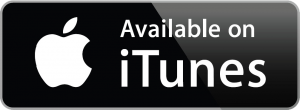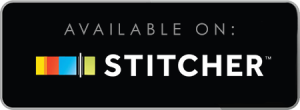
How can you easily develop and monetize your personal brand?
Chris Ducker is a proud British entrepreneur, a bestselling author, keynote speaker, and a world-renowned expert on personal branding. He is also the host of the podcast, Youpreneur FM.
I recently interviewed Chris to get advice on building an authentic brand that provides measurable value. (The transcript below has been edited lightly for space and clarity.)
Kevin Kruse: Where should people start when it comes to creating a personal brand?
Chris Ducker: The first thing is they need to find who they are and what they want to be known for. That’s the single most important thing.
A lot of people just go into this just saying, “Well, I’m an expert on staff retention,” for example, and they just get started with that, and they put themselves out there and say, “Yeah, yeah. I can help you with staff.” That’s not enough. You’ve got to go deeper than that. You’ve got to go as deep down as you can on defining who you actually are, what you can do, the benefits of working with you, how you’re going to change people’s lives. What kind of self-awareness you have about yourself is key to what that overall brand will become.
Kruse: And how can we become more self-aware?
Ducker: You can do two things. The easiest way to do it is this: You get a piece of paper. Draw a line down the middle of it. You’re going to make two lists; the first list is called the “Flatter Yourself List,” and you can write down all of the things that you are just incredible at, all the things that you excel out, everything that you know that when you talk about this or when you do that, you just shine. Just flatter the hell out yourself. The second list is called the “Be Real with Yourself List,” and that’s a list of all the things that you suck at, the stuff that you struggle with, the stuff that you avoid outright.
That little self-awareness exercise alone is huge to defining who you actually are, and what you want to be known for and what you want to become known for. But one of the biggest exercises that I get my personal brand students to do is to actually write their own business obituary.
How would you want your business to be remembered if everything ended suddenly? You’ve got to hold absolutely nothing back here. You’ve got to reach for the stars, and that’s how you define who you are and what you want to be known for. That really is the beginning of it. After that, the next logical step is to define who your perfect customer is, because now that we know who we are and what we want to be known for, we have to think about who we want to work with and who we want to serve, so the next exercise then is obviously to go ahead and define that perfect customer.
Kruse: After I’ve got my brand and some content marketing in place, how can I monetize it?
Ducker: The first thing you need to do is you need to figure out what you’re going to sell, and the only way you can figure that out is to talk people.
I thoroughly suggest that you don’t do what a lot of people do, and they say, “Well, hey. I can put a great course together on how to be a phenomenal dog groomer,” but the fact is that if people in your network don’t want to buy a course on how to become a great groomer of dogs, then you’re going to be wasting all that time and energy in putting together that course. But if you survey them, if you ask questions of them–you can do it via an online survey like SurveyMonkey or you can do it face-to-face at live events–you can ask two or three quick questions, like: What’s the one thing you’re struggling with the most right now? When you consume my online content, how does it make you feel? What problems am I solving for you? What type of content do you consume from me the most? Is it blog post? Is it podcast? Is it video? Let me know.”
See, those questions alone, we know where their biggest pain point is, we know how they feel when we help them, and we know what type of content they are ultimately consuming the most.
Kruse: What’s an example of uncovering a pain point?
Ducker: Let’s say their biggest pain point right now is that they’re struggling to build out their social media following. We know that when we help them via our content, that they feel relief. They feel like they’re somebody in that corner. That’s great P2P right there, and we also know that they like to watch our videos above and beyond everything else that we create, so what do you do? You put together a short video course on how to build out your social media presence in the right manner to be able to serve their audience better.
Once you ask those survey questions or you just talk to them in general … You can get really ninja with it and have a lot of multiple choice things and all the rest, but ultimately, it’s going to come down to those few things, and that’s the first thing you do. You’ve got to figure out how or rather what you’re going to sell.
After that, it’s figuring out the different ways that you can then go ahead and monetize that whether it’s a course or whether it’s through a one-off info product. Maybe it’s through putting decent sponsorships in front of them or sponsors in front of them. Maybe it’s a book. Maybe it’s coaching. There’s a lot of different ways to monetize.
Kruse: I like to help readers become 1% better every day. Can you challenge them to try something right away?
Ducker: I want them to do that exercise, that one page, one line down the middle. What are you great at, and what do you suck at? You can’t build a personal brand if you don’t know who you are, and what you want to be known for, and how you’re going to help and serve people.
It’s the place to start when it comes to building out your personal brand, to define who you are. It’s that simple.
—
Click below to subscribe to The LEADx Show on iTunes or Stitcher and get these interviews delivered straight to your phone.
Photo: Pixabay/Pexels







